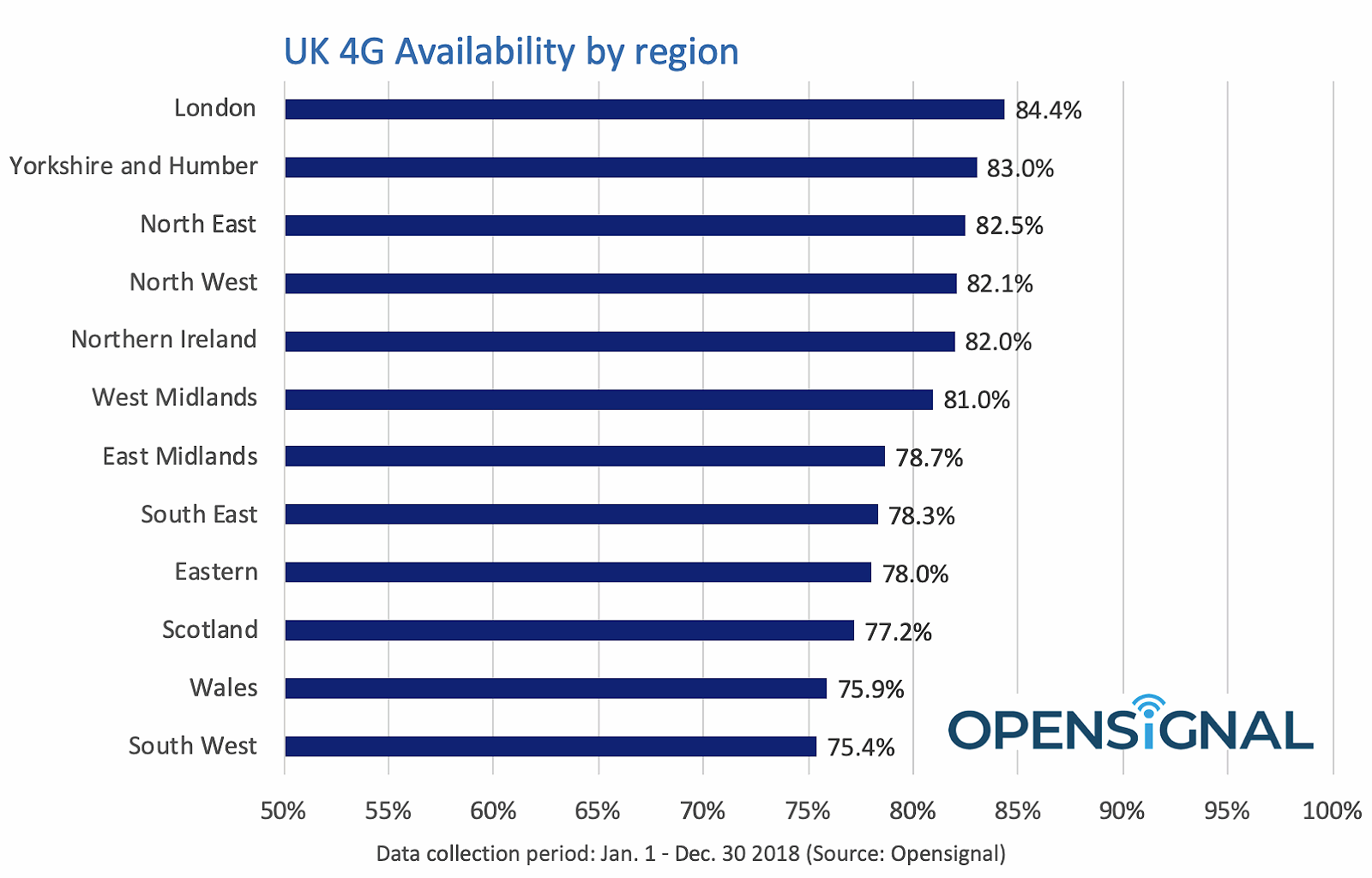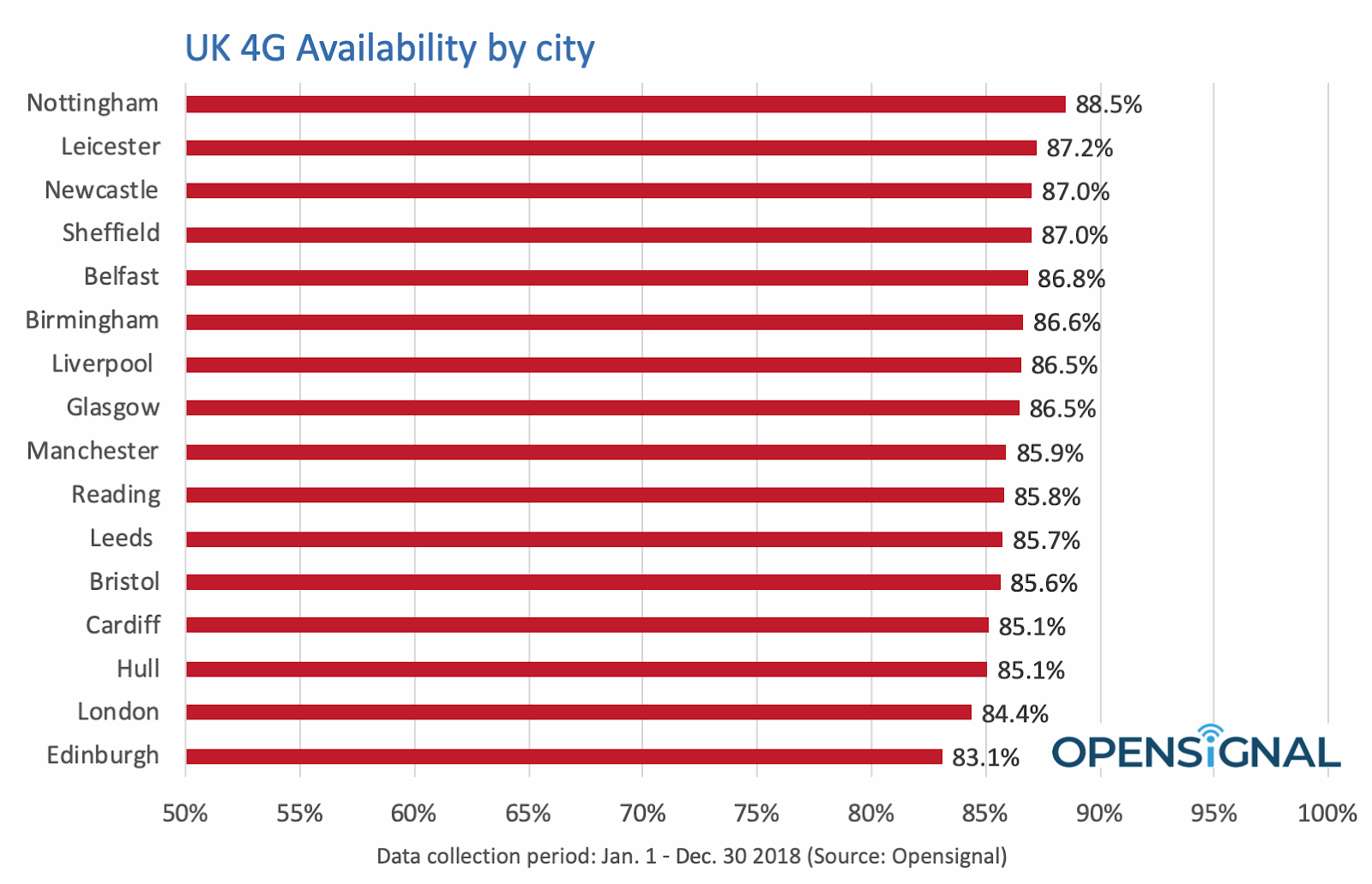
23 Million Brits continue to face 4G issues
With all major networks in the UK set to have rolled out 5G by October, more than 23 million phone users are still experiencing difficulties connecting to 4G, including more than 5 million struggling every day — according to new research from uSwitch.com, the price comparison and switching service.4g issues uk
A third (33%) of adult smartphone users — 17.1 million people — have trouble connecting to 4G at least once a week, despite telecoms watchdog Ofcom claiming that 67% of the UK has 4G coverage from all major operators.
This means that almost a third of the country is frequently forced to rely on a 3G signal — two generations behind the current cutting-edge technology.
The launch of 5G looks unlikely to solve the problem, with all 34 locations due to get coverage by the end of 2019 being cities or large urban areas. London and Cardiff will soon be served by four 5G networks, and customers in Bristol, Edinburgh, Birmingham and Manchester will have the choice of three providers.
Only 28% of the country will have 5G by the end of 2019, with 72% of the population left without access to fifth-generation connectivity in the near future.
New data from Opensignal and uSwitch reveals that three-quarters (75%) of the South West is covered by 4G. Huge swathes of the region will miss out on 5G in the short term as the technology is only due to come to Bristol and Plymouth by the end of 2019.4g issues uk
Wales and Scotland are also lagging behind the rest of the country in 4G availability, at 76% and 77% respectively. Cardiff is the sole place in Wales that will be served by 5G before 2020, while Glasgow and Edinburgh are Scotland’s only places due to get fifth-generation technology in the near future.
Chart: UK 4G Availability by region

The digital divide is highlighted by the low 4G Availability figures in rural areas, while the UK’s major cities all have more than 80% 4G Availability according to Opensignal’s data.
Nottingham has the highest 4G Availability in the UK, with 89% of the city served by fourth-generation services.
Chart: UK 4G Availability by city

London surprisingly comes 15th out of 16 cities, with Opensignal users in the capital is only able to connect to 4G 84% of the time. Only Edinburgh has worse 4G Availability, with Opensignal’s users only able to access 4G 83% of the time.
The Opensignal data is backed up by the evidence of mobile phone users, with three out of five Londoners (60%) saying they had experienced difficulty connecting to 4G. This is the highest rate of complaints in the country. By comparison, less than a third (31%) in Newcastle reported such problems.
Across the country, a third (32%) of phone users struggle with 4G connectivity at home, while 5 million people have issues connecting while on public transport.
Despite connectivity issues, three-quarters (73%) of phone users have not changed their network in the past two years. And a quarter (22%) of people have not changed networks for more than five years, even though almost half of them continue to experience 4G issues.
It is hoped that the arrival of 5G services will help address the UK’s coverage issues, but only one in seven phone users (14%) plan to upgrade to the new technology within the next year. Even those who struggle with 4G are unconvinced by the merits of 5G, with only a fifth (22%) intending to switch in the near future despite their ongoing connectivity issues.
Only a fifth of people (19%) think 5G will improve connectivity, with almost a third (30%) thinking it will be more expensive, despite Vodafone and Three already announcing that their 5G services will be priced the same as 4G.
With both national coverage and consumer experience of mobile services so variable, uSwitch.com is warning that 5G will not solve the problems that currently exist in rural areas, and is urging providers to work with communities to improve rural mobile coverage. 4g issues uk











